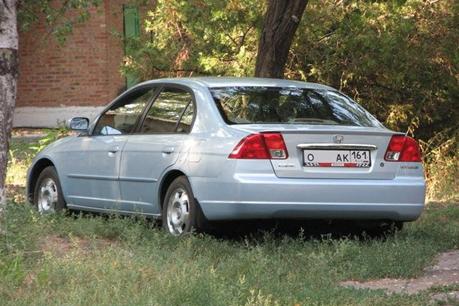TEXT8. GREEN CARS
Many of the world's cities lie under a permanent blanket of smog. People are concerned about global warming, and fuel prices just keep going up and up. It's no surprise therefore that in recent years car manufacturers have been put under pressure to invent a vehicle that is both cheaper to run and better for the environment. Finally, after much trial and error it seems as though they might be making progress and the future of the car industry is beginning to look a little 'greener'.
One of the first ideas which car manufacturers tried was to replace engines which run on fossil fuels with electric motors. Unfortunately these vehicles had several drawbacks and they didn't sell very well. The problems were that the batteries of these electric cars ran out very quickly and took a long time to recharge. Also the replacement energy packs were very expensive.

However the idea of electric cars has not been scrapped altogether. Car manufacturers have improved the concept so that environmentally friendly cars can now be efficient and economical as well. This is where the hybrid car, which has both an electric motor and a traditional petrol engine, comes in. The electric motor never needs to be recharged and it is much better for the planet than a traditional car.
In a hybrid car the engine is controlled by a computer which determines whether the car runs on petrol, electricity or both. When the car needs maximum power, for example, if it is accelerating or climbing a steep hill, it uses all of its resources whereas at steady speeds it runs only on petrol. When slowing down or braking the electric motor recharges its batteries.
Hybrid cars are better for the environment because the electric motor can help out whenever it is needed and they have a much smaller engine than a traditional car. Also hybrid cars on the market are made using materials such as aluminium and carbon fibre which makes them extremely light. Both of these factors mean that they use far less petrol than normal cars so they produce less pollution.
Of course hybrid cars aren't perfect; they still run on fossil fuel and so pollute the environment to some extent. However, they may be the first step along the road to cleaner, 'greener' cars. Car manufacturers are already working on vehicles which run on hydrogen. The only emission from these cars is harmless water vapour. These are still some way in the future, though, as designers need to think of cheap and safe ways of producing, transporting and storing hydrogen, but at last, it looks like we might be heading in the right direction.
Ex.1. Read the text, choose the correct answer (A,B,C or D).
- Car manufacturers are trying to invent a new vehicle because
- today's cars produce too much poisonous gas.
- it is difficult to drive in cities.
- today's cars use too much fuel.
- the car industry is in trouble.
- Vehicles which ran on electric motors
- moved very fast.
- were made of pieces of scrap.
- were not very popular.
- had to have their engines replaced.
- The electric motor in hybrid cars
- doesn't need to recharge its batteries.
- has its own petrol engine.
- takes a long time to be recharged.
- needs replacement energy packs.
- The computer in a hybrid car
- powers the engine.
- helps the car to go up hills.
- keeps the car running at a steady speed.
- decides how the car should be powered at any given time.
- Hybrid cars are better for the planet because
- they use different fuel to normal cars.
- they are made of special materials.
- the electric motor is smaller than a normal engine.
- they produce less harmful gases.
- Hybrid cars are not the ideal solution because
- they produce carbon fibre.
- they do not make the roads cleaner.
- they also use petrol.
- they are made from aluminium.
- Cars which run on hydrogen are not available yet because
- it is hard to drive them in the right direction.
- it is difficult to store hydrogen.
- they produce too much water vapour.
- there is no future for them.
Ex.2. Answer the questions.
- What was the writer's purpose?
- Can you name any environmentally friendly means of transport?
- Which do you use?